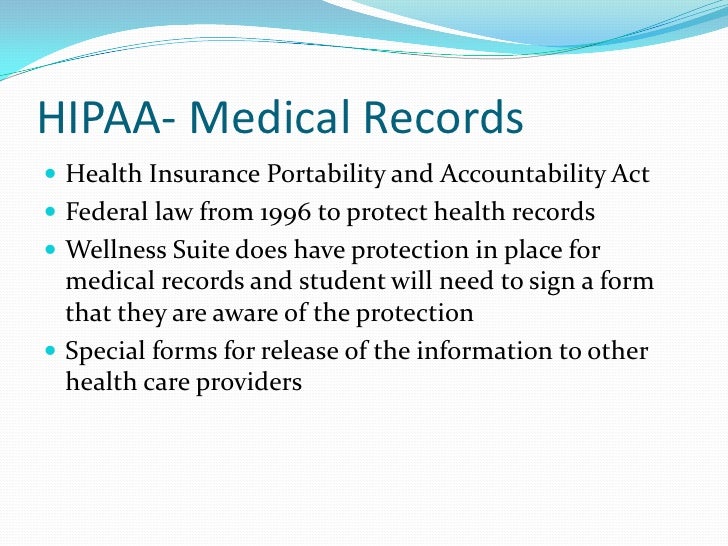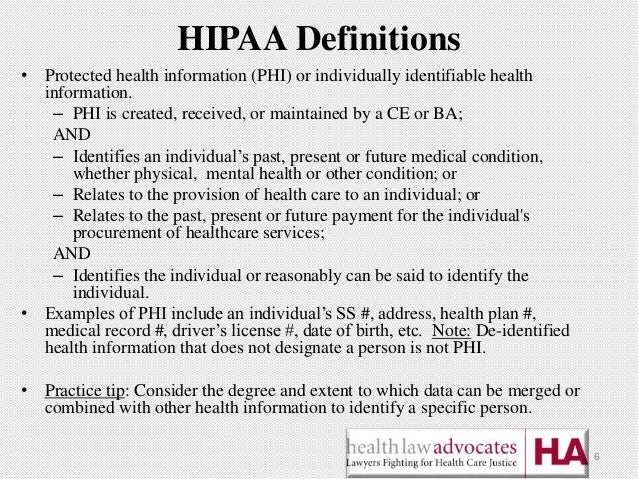
Hipaa Subpoena For Medical Records What You Need To Know
The most common hipaa violations that have resulted in financial penalties are the failure to perform an organization-wide risk analysis to identify risks to the confidentiality, integrity, and availability of protected health information (phi); the failure to enter into a hipaa-compliant business associate agreement; impermissible disclosures of phi; delayed breach notifications; and the. With limited exceptions, the hipaa privacy rule gives individuals the right to access, upon request, the medical and health information (protected health information or phi) about them in one or more designated record sets maintained by or for the individuals’ health care providers and health plans (hipaa covered entities). It’s a patient’s right to view his or her medical records, receive copies of them and obtain a summary of the care he or she received. the process for doing so is straightforward. when you use the following guidelines, you can learn how to. How to assure your private information is kept confidential every item on this page was chosen by a woman's day editor. we may earn commission on some of the items you choose to buy. 1. ask the staff at your doctor's office if you can bring.
Your Rights Under Hipaa Hhs Gov
What is protected health information?.
Hipaa Overview And Vaccine Administration Cdc
In general, “[a] covered health care provider [with a direct treatment relationship] must obtain the medical records protected by hipaa individual’s consent,…prior to using or disclosing protected health information to carry out treatment, payment, or health care operations. ” (see section [§] 164. 506, 65 federal register [f. r. ] p. 82810, for complete requirements. ). Ocr has teamed up with the hhs office of the national coordinator for health it to create your health information, your rights! a series of three short, educational videos (in english and option for spanish captions) to help you understand your right under hipaa to access and receive a copy of your health information. Create a high quality document online now! the medical record information release (hipaa), also known as the ‘health insurance portability and accountability act’, is included in each person’s medical file. this document allows a patient to. Confidential patient medical records are protected by our privacy guidelines. patients or representatives with power of attorney can authorize release of these documents. we are experiencing extremely high call volume related to covid-19 va.
Let’s look at how hipaa affects your handling of protected health information. hipaa and your organization. hipaa applies to all organizations, individuals, and agencies that match the description of a covered entity. covered entities are required by law to protect an individual’s rights when handling their protected health information (phi). Whether you're interested in reviewing information doctors have collected about you or you need to verify a specific component of a past treatment, it can be important to gain access to your medical records online. this guide shows you how.
The hipaa privacy rule protects the privacy of individually identifiable health information, called protected health information (phi), as explained in the privacy rule and here pdf pdf. the security rule protects a subset of information covered by the privacy rule, which is all individually identifiable health information a covered entity creates, receives, maintains or transmits in electronic form. Protectedhealth information (phi) and individually identifiable health information are types of protected information that can't be shared without your authorization. there are few cases in which health care providers or other health entities are not required to follow hipaa regulations. Under hipaa, protected health information is considered to be individually identifiable information relating to the past, present, or future health status of an individual that is created, collected, or transmitted, or maintained by a hipaa-covered entity in relation to the provision of healthcare, payment for healthcare services, or use in healthcare operations (phi healthcare business uses). Hhs hipaa home for professionals faq 580-does hipaa require covered entities to keep patients’ medical records for any period of time no, the hipaa privacy rule does not include medical record retention requirements. rather, state laws.
What Is Considered Protected Health Information Under Hipaa

Hipaa vaccine records law addresses the issue of when covered entities may share vaccination records with public schools. children typically receive their vaccinations from their own healthcare providers. to encourage vaccination, the protected health information that is disclosed is limited to proof of immunization;. Hipaa is a law that protects your medical information and history. medical providers like doctors and insurance companies are beholden to hipaa. medical records protected by hipaa a leading-edge research firm focused on digital transformation. subscriber account active since. Hipaa authorization right of access; permits, but does not require, a covered entity to disclose phi: requires a covered entity to disclose phi, except where an exception applies: requires a number of elements and statements, which include a description of who is authorized to make the disclosure and receive the phi, a specific and meaningful description of the phi, a description of the. The law known as the health insurance portability and accountability act, or hipaa, is hugely misunderstood. and the latest people to misunderstand it are anti-maskers who claim that it’s illegal to ask them why they’re not wearing a mask.
Thus, for example, a hipaa covered entity that maintains health or medical records, correspondence files, physician diaries and casebooks, or photograph collections that contain identifiable health information on individuals who have been deceased for more than 50 years may use or disclose the information without regard to the privacy rule because the information is not considered protected health information. Hipaa general fact sheets. your health information privacy rights; privacy, security, and electronic health records; sharing health information with family members and friends; who must follow these laws. we call the entities that must follow the hipaa regulations "covered entities. " covered entities include: health plans, including health insurance companies, hmos, company health plans, and certain government programs that pay for health care, such as medicare and medicaid. Information is considered protected health information if it meets two requirements business associate to divulge proof of compliance with hipaa (such as policies and procedures, training records, etc. ) before entering into the business associate. A propublica report found more than 180 servers on which people’s medical records were available with minimal or no safeguards. an award-winning team of journalists, designers, and videographers who tell brand stories through fast company's.
Home Datafile Technologies

Protectedhealth information is defined in the code of federal regulations and applies to health records, but not education records which medical records protected by hipaa are covered by other federal regulations, and neither records held by a hipaa-covered entity related to its role as an employer. Your medical information is still protected by hipaa 50 years after your death to ensure that your rights will not be violated. during this period, family members, and whoever has the authority to. The health insurance portability and accountability act of 1996 (public law 104-191), familiarly known as hipaa, established a national platform of consumer privacy protection and marketplace reform. some key provisions include insurance reforms, privacy and security, administrative simplification, and cost savings.

A hipaa subpoena for medical records is an area where there is considerable potential for a hipaa violation. when healthcare organizations receive a subpoena for medical records, how should they respond? subpoenas are often used by attorneys to gain access to information critical to a legal case or to compel an individual to testify. The rule explicitly excludes from the medical records protected by hipaa definition of “protected health information” individually identifiable health information regarding a person who has been deceased for more than 50 years. see paragraph (2)(iv) of the definition of “protected health information” at § 160. 103.
In many cases, the statutes of limitation are longer than any hipaa record retention periods. when the retention periods for medical records and hipaa documentation has been reached, hipaa requires physical and electronic forms of phi to be disposed of securely to prevent medical records protected by hipaa impermissible disclosures of phi. see 45 cfr § 164. 310(d)(2)(i-iv). This information is called “electronic protected health information” (e-phi). the security rule does not apply to phi transmitted orally or in writing. to comply with the hipaa security rule, all covered entities must do the following: ensure the confidentiality, integrity, and availability of all electronic protected health information. The administrative simplification provisions of the health insurance portability and accountability act of 1996 (hipaa, title ii) required the secretary of hhs to publish national standards for the security of electronic protected health information (e-phi), electronic exchange, and the privacy and security of health information.